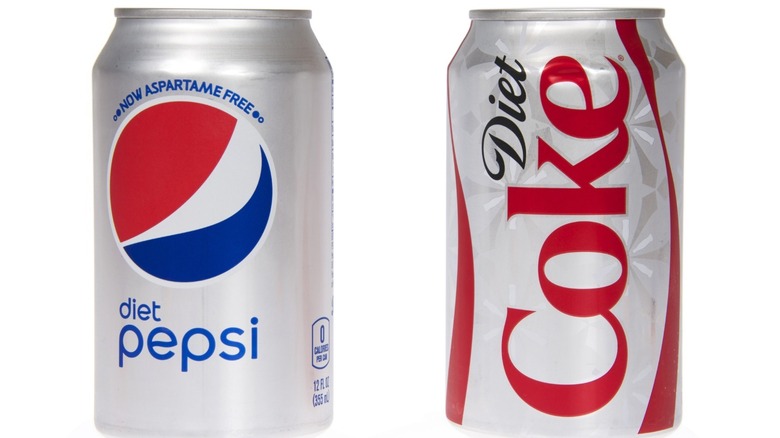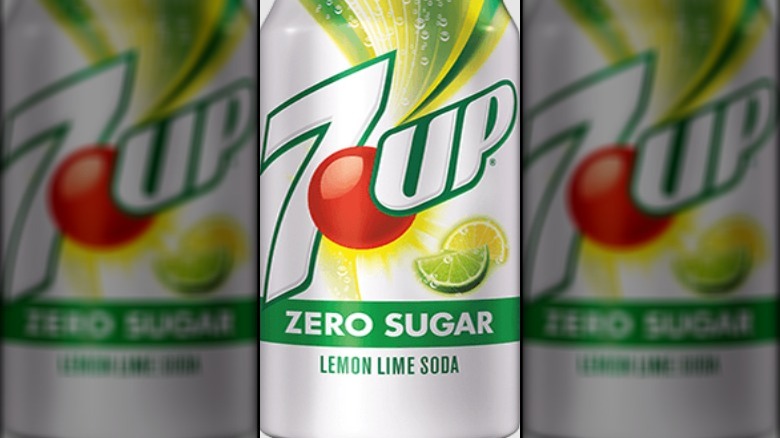The Real Reason You're Seeing Less Diet Soda In Stores
When Royal Crown Cola debuted Diet-Rite Cola in 1958, the company marketed it toward diabetics (via Our Everyday Life). However, as Diet-Rite Cola quickly became one of the nation's best selling sodas, companies like Pepsi and Coca-Cola began noticing that most consumers were actually not diabetics, but dieters, and quickly invented their own comparable products to compete in the diet soda market (via Fast Company). Fast forward to 2021 and CNN has recently reported that diet sodas are an increasingly scarce find in retailers, and have instead been replaced with soft drinks labeled as "zero sugar" — indeed, sodas like Canada Dry, 7Up, A&W, and Sunkist have all rebranded from "diet" to "zero sugar." But why make such a seemingly small switch-up? It's all a marketing strategy aimed toward younger generations, including Millennials and Generation Zers. Chief Marketing Officer of PepsiCo Beverages North America Greg Lyons chimed in on the topic, stating, "Younger people just don't like the word 'diet.'"
While some aim to cut back on sugar, "zero sugar" drinks may still contain artificial sweeteners
In fact, according to a study completed by marketing research company Mintel, as many as 49% of teenagers believe soda is an unhealthy beverage choice, and 25% voiced their concerns about staying healthy (via Food Dive). "Generation Z has come of age at a time when health and wellness is a major consideration. Many younger members of Generation Z follow their parents' healthy ways and it seems health-consciousness only gets stronger as they approach adulthood," said Dana Macke, associate director of lifestyles and leisure reports at Mintel.
As Healthy Food Guide points out, however, some –- but not all –- of these "zero sugar" sodas, such as Coke No Sugar, instead contain aspartame and Acesulphame Potassium, which are no-sugar sweeteners. 7Up's website also confirms that 7Up Zero Sugar also contains these ingredients. Therefore, despite there being no sugar in these products, there still is a sweetening agent, but, as Healthy Food Guide further reports, most studies conducted on these ingredients have concluded they are not a health risk. Still, many medical professionals — including dentists, who voice concern over soda's acidity — encourage against consuming all soft drinks, whether they contain actual sugar or artificial sweeteners.

